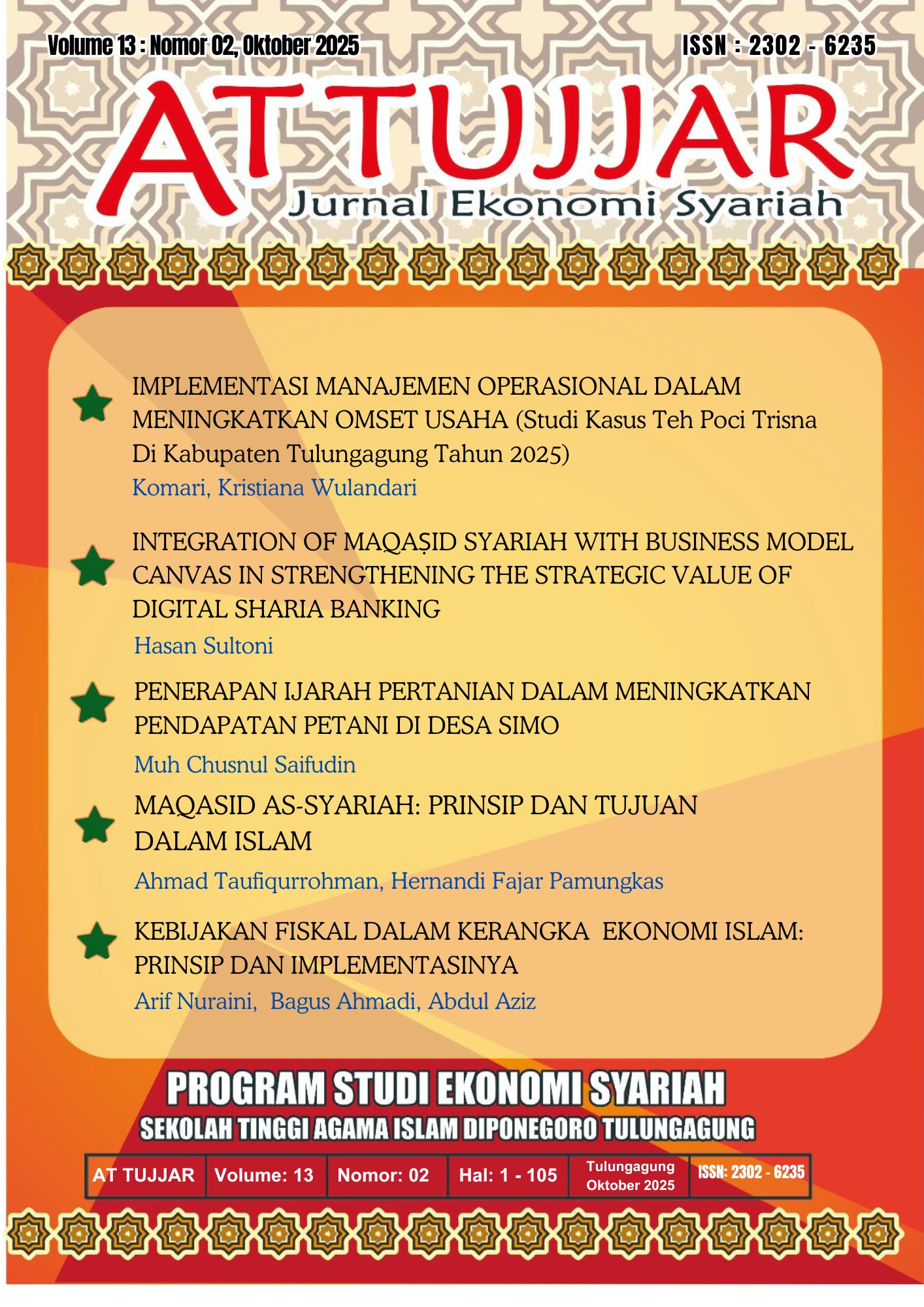MAQASID AS-SYARIAH: PRINSIP DAN TUJUAN DALAM ISLAM
Abstrak
The understanding of Shariah often focuses on technical legalities (fiqh) without delving into its universal objectives (Maqasid Al-Shariah). The gap between the elitist theory of Maqasid and its limited practical application risks rendering Islamic law irrelevant and inflexible in addressing contemporary issues.
This article aims to bridge this gap by formulating an applicable operational framework for Maqasid Al-Shariah, enabling it to function as an analytical tool for solving the socio-economic problems of the community.
This study uses a qualitative approach through library research. Data was collected from primary (such as the works of Al-Shatibi and Auda) and secondary sources, then analyzed using content and conceptual analysis techniques to reconstruct Maqasid thought into a systematic framework.
The research successfully formulated an operational framework for Maqasid based on a systems approach. This framework demonstrates that Maqasid can transition from theoretical discourse into a powerful analytical instrument for diagnosing and offering substantive solutions to multidimensional problems, such as economic inequality and environmental degradation. This framework also contributes to contemporary ijtihad methodology, public policy formulation, and integration with global discourses like the SDGs, thereby restoring Maqasid's function as the spirit of a living and relevant Islamic law.




